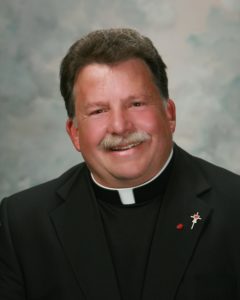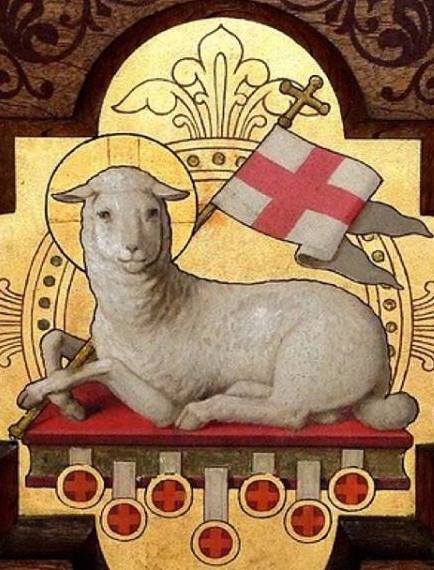By Fr. Tim McFarland, C.PP.S.
Years ago, an advertising campaign used the phrase “you are what you eat.” That came to mind today on this Feast of the Body and Blood of Christ. In fact, some suggest that this phrase has its origins in early popular Catholic thought with regard to the Eucharist.
Eating a meal together can generate feelings of togetherness. We all have our own memories of table fellowship. Many of these will be happy experiences of celebration and love. Some memories may be sad, times when we were more aware of one who was absent than of those who were present.
Jesus shared a table many times with his disciples. It is likely that at these times, Jesus also shared with them his vision of God’s kingdom. At table, the disciples came to know Jesus. Of all the meals he shared with them, the meal that stayed in their memory more than any other was their last meal together, what came to be known as the Last Supper.
At the Last Supper, Jesus gave himself in a way he had never done before, and in a way that anticipated his death on the following day. In giving himself in the form of the bread and wine of the meal, he was declaring himself to be their food and drink. In sharing and eating the bread and wine, the disciples became more like Christ—they were challenged to become what they ate.
When we eat food or drink it becomes part of our body. Our theological tradition tells us that when we eat the bread of the Eucharist we become more like Christ—we become what we eat. The implication of this transformation can be found in the Gospel.
Jesus wanted to feed the hungry crowd but he did not distribute the food in person. Rather, he tells the twelve to do that: “Give them something to eat.” They complained about the limited resources that could not provide for everyone. We need to believe Jesus when he says, “You have all that is needed.” In this narrative like other feeding miracles in the Gospels Jesus used food shared by others to feed people. They gave part of themselves to fill the needs of others.
As we receive the Eucharist, the minister says, “The Body of Christ.” Let’s accept the challenge of being the Body of Christ in the world today—called to do what Jesus did in the world. In a special way, we who share the spirituality of the Precious Blood should also be transformed to be life givers in a world that sorely needs the healing power of Christ.
![]()

Fr. Tim McFarland, C.PP.S., is the director of ministry and mission and serves on the faculty at Calumet College of St. Joseph in Whiting, Ind.

